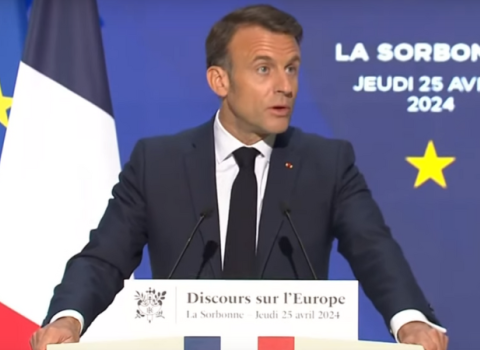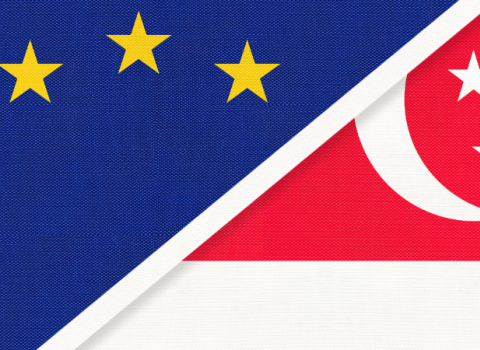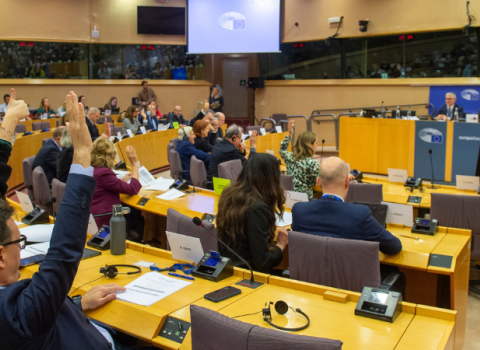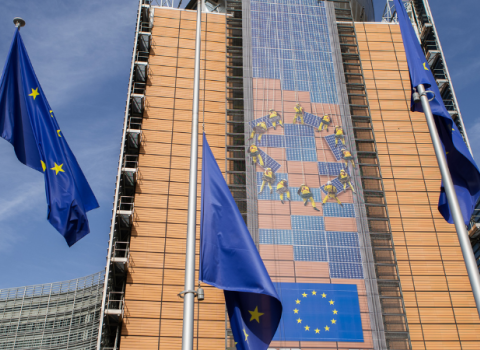Talks with Japan, South Korea, Canada and New Zealand have all made progress, EU lead negotiator Signe Ratso tells Science|Business. But association is likely only to be partial, and the UK and Switzerland remain shut out of the research programme
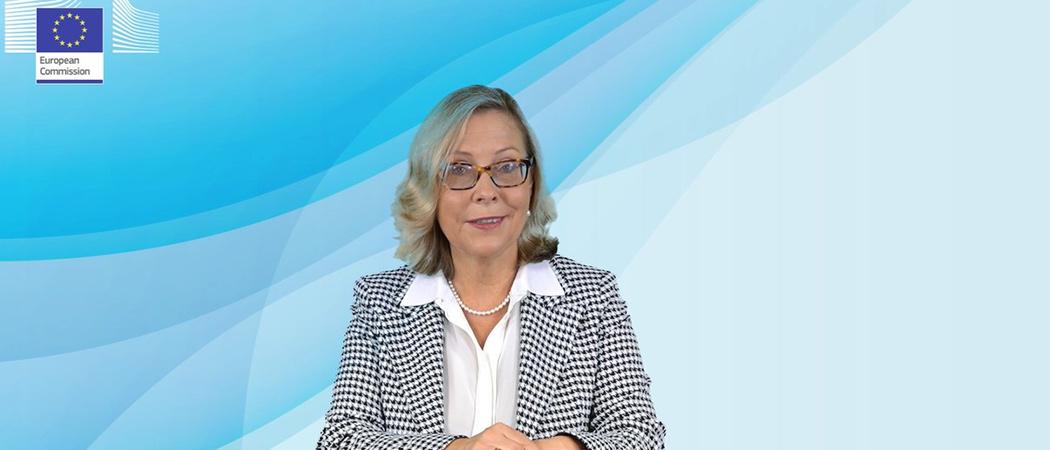
Signe Ratso, Brussels lead negotiator on association to Horizon Europe. Photo: European Union
The invasion of Ukraine has helped open the door for Japan, Canada, South Korea and New Zealand to join Horizon Europe, according to Brussels lead negotiator Signe Ratso, as the EU tries to bolster research ties with likeminded democracies.
Last year, it appeared that the Commission’s efforts to convince these science powers to associate had stalled.
But earlier this month, Japan announced it had started exploratory talks over association, capping a flurry of progress since February that could expand the global footprint of the framework programme beyond any of its predecessors.
“The geopolitical environment has changed,” said Ratso, deputy director general at the Commission’s research and innovation directorate. “So it's quite natural that you'd like to cooperate with the countries with whom you share the same values.”
The invasion of Ukraine is “certainly an additional trigger” to press ahead with association, not just for the EU, but also for the countries now scoping out association, she said.
Horizon Europe association is open to any country in the world, provided they have a good research and innovation capacity and boast things like democratic institutions and an open market economy.
Last year, the Commission made very public overtures encouraging Canada to join, and Ottawa started exploratory talks in July. But after that public signs of progress went quiet.
Then in February this year, New Zealand and South Korea also started exploratory talks. And last month, Canada and New Zealand moved on to the next, formal stage of negotiations.
“What we are trying to do, and with Horizon Europe association […] is really to form […] an alliance of free, democratic countries that share the same values,” said one member state representative who wanted to remain anonymous.
“Now with Russia’s war on Ukraine, it’s speeding up things,” the representative said, particularly with Japan.
“People want to trade with people who share the same values, and therefore, Canada and the European Union are allies by nature,” said Canadian science minister François-Philippe Champagne when asked about association during a trip to Europe earlier this month.
The talks with Tokyo are part of a wider European pivot to Japan. The Ukraine invasion has undermined an already shaky relationship between Brussels and Beijing due to China’s support for Russia.
In April Germany’s chancellor Olaf Scholz broke with the Angela Merkel era by visiting Japan, not China, on his first Asian trip.
And the news that Japan had entered exploratory Horizon Europe association talks was made during a broader diplomatic visit to Tokyo in mid-May by Commission president Ursula von der Leyen and Council president Charles Michel.
“That's sort of very traditional science diplomacy, that you do a much larger thing, and then you sort of have a sweetener on top of that,” said Thomas Jørgensen, director of policy coordination and foresight at the European University Association.
In Ratso’s telling, while Ukraine was one factor that has speeded up association talks, another was the pandemic: a crystal-clear demonstration of the need to collaborate across borders to find scientific solutions.
Other factors at play
However, the Ukraine war is far from the only development unlocking negotiating progress. New Zealand and South Korea agreed to exploratory talks in mid-February before the outbreak of war.
And Japanese sources don’t play up the invasion as a lubricating factor as much as EU and member state officials. One Japanese research representative, who wished to remain anonymous, said they see the EU as relatively easy to work with on intellectual property rights, transparent in its decision making, and respectful of Japanese scientific prowess.
By contrast, Chinese research policymaking was a black box, and the US too, often wanted to take the lead on research projects in order to preserve its technological lead, they said.
Another key decision that has eased along the discussions is the decision of Jean-Eric Paquet, currently head of the research and innovation directorate, to plan a move to become EU ambassador to Japan.
“This is also a clear statement, sending the research chief to Japan,” said an EU member state representative.
Another Japanese research representative, who wanted to remain anonymous, said that both the EU and Japan shared similar social and environmental goals with their research missions.
And the waning of pandemic restrictions has also smoothed talks by allowing negotiators to meet face to face, a member state official said. “You can only do so much exploring online,” they said.
A Canadian university source concurred that talks had been able to move forward after “two years of pandemic-induced delays.”
“Certainly, it's much easier to negotiate if you physically meet the people,” said Ratso.
Partial association
Both Japanese and EU member state sources say that Japan is not likely to associate to the whole of Horizon Europe, however.
Instead, it is expected to associate to pillar 2, which accounts for the majority of Horizon funding. This focuses on applied R&D, including everything from clusters of companies and universities working on industrial challenges, to missions like beating cancer or creating climate neutral cities.
Ratso declined to confirm exactly which countries were looking at which pillars. But she did say that, “Pillar 2 association […] would make sense both from the EU perspective but also from the perspective of these countries.”
Pillar 1, which focuses more on excellent, blue-skies research, is seen as a difficult fit for a country like Japan because this pillar includes the European Research Council. Japanese association to the ERC could produce some perverse outcomes – like ERC grants being used to enable US researchers to relocate to Japan.
“The ERC is very much about attracting researchers to Europe and maybe to its closest partners,” said Jørgensen.
However, Japan could be in the frame to join in the Marie Skłodowska-Curie network of postdoctoral fellowships, one member state representative said.
Pillar 3, which is focused on encouraging European entrepreneurship, is also seen as a difficult case to make. “Why would you support Japanese startups?” asked Jørgensen.
But the other three countries might not follow Japan’s narrow focus on pillar 2. South Korea, which has only just started talks, has expressed interest in pillar 1, said a member state representative. “But generally we would favour a focus on pillar 2,” they said. “The ERC is acting as a magnet to attract talent to Europe.”
A challenge to governance
The Commission may celebrate if several big new science powers become part of Horizon Europe, but their inclusion also risks bending the framework programme’s governance system out of shape.
Associated countries can sit on programme committees, but don’t have voting rights. This might have not been a problem when the biggest associated countries were Turkey or Israel, but the inclusion of Japan, Canada, South Korea and New Zealand – not to mention the UK and Switzerland – would form a sizable bloc of countries lacking a formal say.
“Even if they do not have voting rights, certainly they participate in the discussion, and if they have good ideas then they would be heard,” said Ratso. Horizon Europe’s cluster topics have already been decided, she pointed out, although associated countries can influence individual work programmes.
This kind of observer model might work for a smaller country like Switzerland, said Jørgensen, which has built up ways of achieving “informal influence” over Horizon Europe.
But Japan, which has a bigger economy than even Germany, is “Just so huge. That makes it really interesting,” he said. This strengthens the argument for a partial association, he said, but even a limited inclusion strikes Jørgensen as a tall order to achieve, given the size of the country. “It’s quite surprising,” he said.
As for how much money associated countries will contribute, “We’d rather not use the term, pay as you go,” said Ratso. The contribution would be based on a country’s GDP, but “clearly adjusted” to the “potential” level of participation, based on the example of similar countries in the framework programme.
There is potential for Horizon Europe to expand even further across the globe; South Africa, Brazil and Mexico have also been mooted in the past as potential associated countries. Current discussions with Japan, Canada, South Korea and New Zealand “does not mean that the door is closed to other potential countries,” said Ratso.
One member state representative noted that the Commission had also had preliminary talks with Singapore.
Absent friends
Despite all the talk in Brussels about wanting closer research ties with democratic friends, neighbouring Switzerland and the UK are still not associated.
“When it comes to Britain and also to Switzerland, that nice coherent policy picture suddenly falls apart. It is very, very weird,” said Jørgensen.
Both countries’ association is being held up by wider political stalemate. Bern walked away from talks over its broader relations with Brussels last year, and so the Commission has refused to start association negotiations.
The UK and EU already agreed to association in principle during Brexit negotiations, but Brussels has refused to sign on the dotted line due to disagreements over the Northern Ireland protocol.
Tensions have flared up even further in the last month due to UK government plans to unilaterally over-ride parts of the protocol. University leaders in the UK have warned that time is running out to ink association - the risk is that the UK government loses patience and sets up its own alternative to Horizon.
Will they join?
This could end with a situation where the EU’s closest neighbours remain shut out of Horizon Europe association, while countries tens of thousands of kilometres distant are able to join.
Japan and South Korea’s “exploratory talks” may sound like the very beginning of the process, but they actually followed even more preliminary “technical talks” prior to the formal announcements this year, said Ratso.
For New Zealand and Canada, which are onto the formal negotiation stage, Ratso said she is “optimistic”, although she stresses that any deal would need the blessing of the European Parliament and the Ottawa and Wellington governments too. “This is not a done deal, but we are very hopeful,” she said.
And Ratso hinted that others may join the Horizon Europe queue soon. “Other countries may express their interest also in the coming months,” she said.
